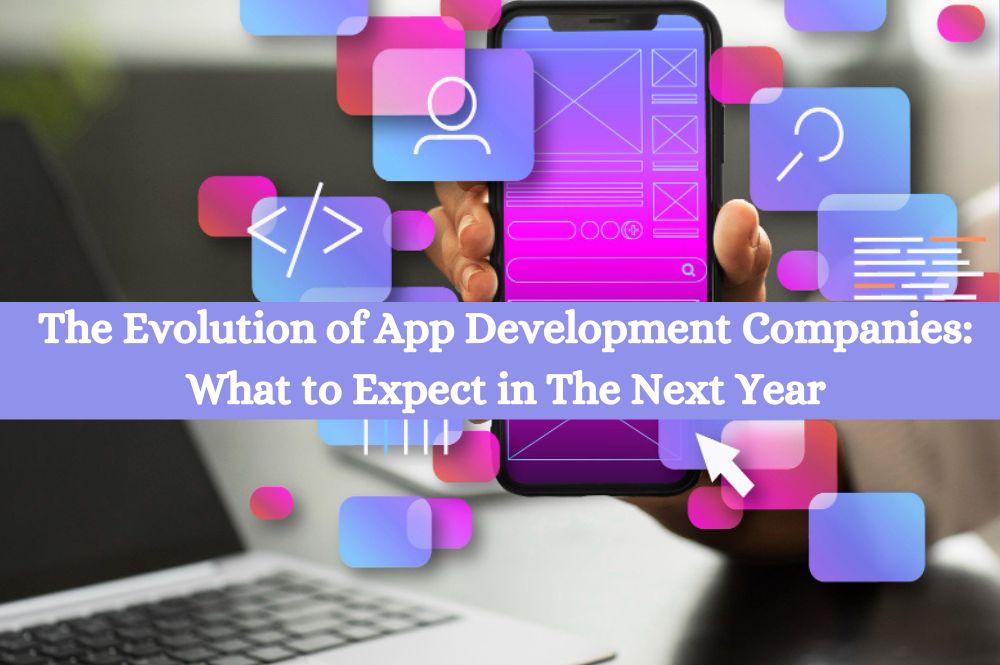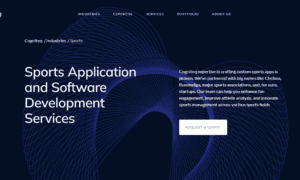The app development industry has been growing rapidly, especially in the post-Covid era. With the emergence of new technologies and the increasing use of mobile devices, the demand for innovative and user-friendly apps has skyrocketed.
A report by Statista projects the expected growth in total revenue from mobile apps at almost 9%, resulting in a market value of US$755.50bn by 2027.
As we approach the middle of 2023, it’s worth taking a closer look at where app development companies are headed to in the coming year.
The Right Technology Stack
Mobile and web applications can no longer just be functional – they need to be reliable, help in improving ROI, and offer competitive advantage.
Employing industry-leading libraries and frameworks, app developers are able to check all the boxes and build for various platforms like iOS, Android, and Windows.
From consumer-grade apps to enterprise solutions, these are the latest technologies that will power feature-rich, user-centric apps.
Programming Languages:
Using the correct programming language depends on the platform where the app will be available. The most popular programming languages used are JavaScript, Kotlin, Java, and C++.
Cross-Platform Development Tools:
React Native and Xamarin are some Cross-Platform development tools that ensure that an application is platform-agnostic.
Cloud Services:
Cloud Services aid in accessing, processing, and storing application data for a better user experience.
Trends & Approaches to Watch Out For
Applications are now expanding into health monitoring, controlling home devices, and other critical applications. Here are the top 9 trends set to alter the app development landscape in the next 1 year.
1. App Gamification:
Taking the industry by storm, gamification of applications is used for an immersive user experience. App Gamification refers to adding gaming elements or context to an existing or a new app to better connect with your customers.
Use Cases:
Educational applications like Byju’s or Duolingo have in-built gaming concepts like points, prizes, quizzes, competition, and trophies, enhancing overall user experience.
2. Data Collection:
A game-changer for enterprises and businesses, this aids in understanding user preference or behavior at large, analyzing consumer trends and patterns across the globe.
Use Cases:
Two of the most popular examples are Google Assistant and Apple Siri. Analyzing collected data helps the virtual assistant to recognize and understand user commands.
3. Metaverse:
A fascinating experience for users, the Metaverse includes personal avatars, VR devices, a virtual environment, cryptocurrencies, and NFTs. This feature is progressively making its way into fashion, education, hospitality, and other enterprise applications.
Use Cases:
Introduced and utilized in popular games like Fortnite, Pokemon Go, and more, this feature takes user experience to the next level.
4. Artificial Intelligence/Machine Learning:
With abilities like listening, speaking, observing, and reciprocating, Artificial Intelligence offers tailor-made experiences for every customer.
Use Cases:
Some of the best AI Applications offering customized solutions to users are Google Maps, Amazon Alexa, Fitness AI, Cortana among many others.
5. IoT- Internet of Things:
The scope for IoT is immense and can be utilized in new app integrations offering security monitoring, accessing, and controlling of remote devices.
Use Cases:
Applications like Amazon Echo Plus Voice Controller and Google Home Voice Controller assist users in their day-to-day activities. Other IoT applications have made their way into Smart Homes, Connected Cars, and Smart Cities.
6. 5G Impact:
The era of 5G brings unlimited possibilities for users, as well as application developers – improved user interface with upgraded graphics, AR facilities, updates, and security.
5G assists in uninterrupted mobile connectivity, finding its way into gaming, lifestyle, hospitality, agriculture, healthcare and more.
Use Cases:
Entertainment, music, gaming, lifestyle, and other similar applications are mostly 5G-enabled. Apps like Netflix, Disney Hotstar, Spotify, and more support this feature.
7. Blockchain:
Blockchain technology has been extensively used for mobile wallet payments, cryptocurrency, bitcoin, and more with security features keeping your applications and personal data hidden from third parties.
Use Cases:
Blockchain applications like Bitcoin, mobile wallets, and more use the tamper-proof feature of blockchain technology to avoid the intervention of other fraudsters or piracy in the utilized application.
8. Wearable Technology:
There has been a significant rise in the use of wear OS applications with the unprecedented popularity of smartwatches and fitness bands.
Use Cases:
Applications such as Fitbit, AccuWeather, and Google Fit are some of the most downloaded apps, as more people jump on the health and fitness bandwagon every year.
9. Augmented Reality and Virtual Reality:
AR-VR technology, common in gaming apps, is now being used in other enterprise applications- retail shopping, fashion, real estate, travel, etc.
Use Cases:
Google Lens is one of the applications that has mastered the art of Virtual Reality, offering users a one-of-a-kind experience. Gaming applications use Virtual Reality in the graphics and interface, offering gamers a new world of adventure.
Evolving customer behavior and technological trends are constantly shaping the industry with modern challenges and opportunities.
The app development ecosystem is advancing towards a personalized and enhanced experience in terms of connectivity and usability.
There has never been a more exciting time to take your brand to your customers and earn their mindshare than now with mobile and web app development companies.



































